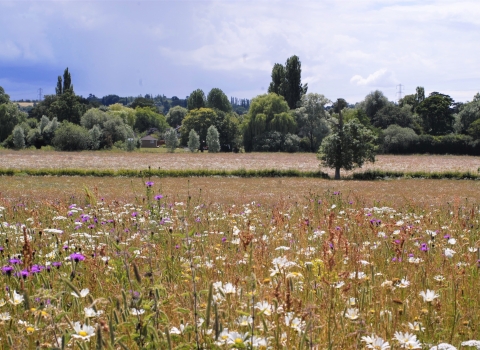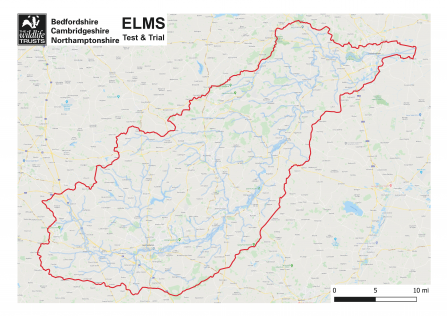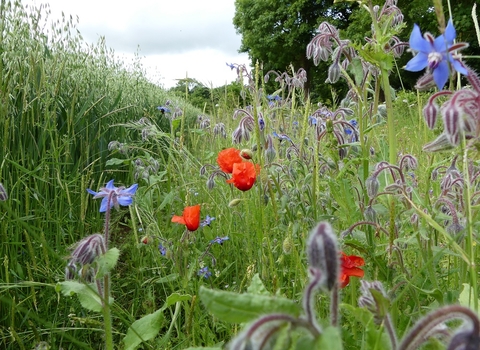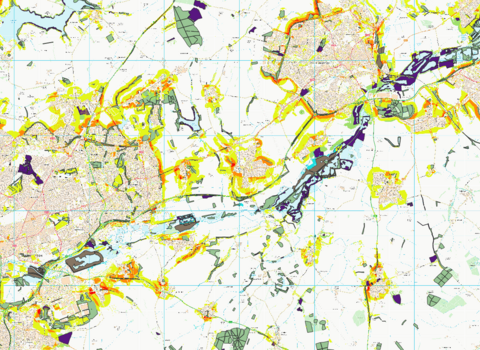As we leave the European Union, we will also be moving away from the Common Agricultural Policy which has governed UK agricultural policy for nearly fifty years. This presents an opportunity to develop an Environmental Land Management (ELM) policy, linked to the new Agriculture Act, aiming to deliver ‘public money for public goods’ across Britain. Government are working with organisations and land managers to progress their thinking in this area through ELM Tests and Trials (T&T).
Out of hundreds of applications across the country, we have secured funding for our T&T in the Nene Valley. We are working with Natural Capital Solutions and land managers in the Upper Nene Valley to trial how habitat opportunity mapping can help prioritise, safeguard and link-up habitats on and across landholdings.
We hope that this tool will improve awareness of the important habitats that exist on landholdings, whilst also highlighting the greatest opportunities for land managers to extend or connect habitats (such as hedgerows or wetlands) with their neighbours as part of a Nature Recovery Network.
Test:
We are testing whether locally derived habitat opportunity mapping can be used to prioritise land holdings for delivering the Nature Recovery Network (NRN) through Environmental Stewardship.
Trial:
We will be trialling the benefits of using locally derived Habitat Opportunity Mapping (HOM) when producing farmer-led whole farm plans that deliver the Nature Recovery Network in the Nene Valley.
The trial element of this proposal will only look at testing the benefit of using HOM to produce plans rather than trialling the implementation of plans, although this is a potential further option for ELM policy to explore at a later date.
Content:
The purpose of our test and trial is to assess a new approach of using detailed Habitat Opportunity Mapping (HOM) to develop whole farm plans that can contribute towards creating a Nature Recovery Network (NRN) in the project area: Upper Nene Valley Catchment.
We will examine how this approach could be utilised by ELMS to deliver a Nature Recovery Network. Our Habitat Opportunity Mapping has been developed at a field-by-field scale and opportunities have been mapped to;
- enhance biodiversity for three different broad habitat types (broadleaved and mixed woodland, semi-natural grassland, and wet grassland and wetland),
- reduce surface water runoff (and hence flood risk),
- reduce soil erosion and improve water quality,
- ameliorate poor air quality, and
- increase public access to natural greenspace.
We will test how HOM can be used to create a map of prioritised landholdings, which will then be used to target farmers with expiring Environmental Stewardship (ES) or Countryside Stewardship (CS) agreements for renewal, and identify landholdings not within stewardship with the greatest habitat opportunity and natural capital potential. This will take place during year 1 (May-Dec 2020), with findings from year 1 going into identifying farmers and farm clusters in years 2 (Jan–Dec 2021) and 3 (Jan–Dec 2022).
We will trial using HOM to target land management advice and generate land management plans (LMPs). We will evaluate the usefulness of HOM in their creation and assess the degree to which LMPs driven by HOM result in greater environmental benefit and landscape connectivity when compared with a LMP created without the use of HOM.
We will also trial the benefits of working with individual farmers or farming clusters the utilising a HOM based approach. This proposal will be trialled with 12 individual farmers and 2 farm clusters (made up of 3-5 farmers) predominantly during years 2 and 3.
Interested?
If you are a landowner that would be like more information on how to get involved in this Test and Trial, please get in touch by emailing Bruce.Gardiner@wildlifebcn.org
News and Blogs

Farming for the Future - Autumn Update
An update on what's been happening during the autumn months, in the Farming for the Future project
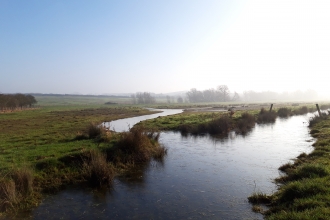
Rotary ditcher update - Water and wildlife has started moving in
The features dug by the rotary ditcher in the Nene Valley last summer have been filling up with water and attracting wildlife. Helena…
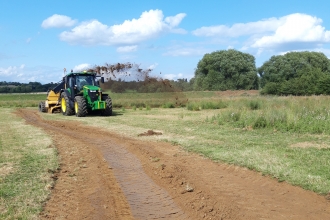
Creating new wetland habitats in the Nene Valley
Farming for the Future project coordinator Helena Darragh has been preparing for the arrival of the only rotary ditcher in the UK for a…

